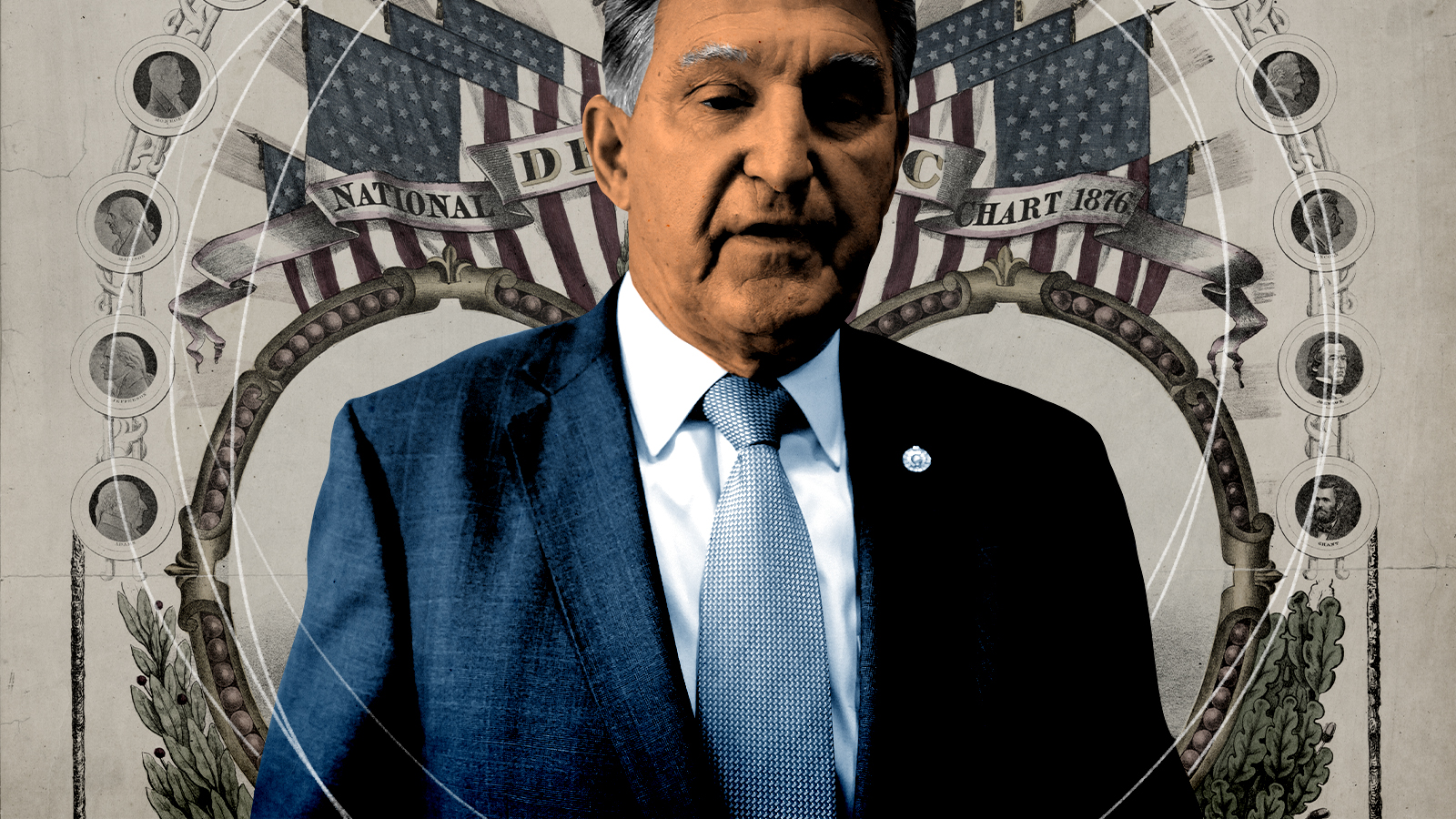Loyal to a party that no longer exists
Joe Manchin is out of step with his party, but it's the party that moved


A free daily email with the biggest news stories of the day – and the best features from TheWeek.com
You are now subscribed
Your newsletter sign-up was successful
Sen. Joe Manchin (W.Va.) isn't giving his fellow Democrats anything to celebrate this Christmas. In a surprise Sunday announcement on Fox News, Manchin effectively killed the most recent version of the Build Back Better proposal.
After weeks of negotiation, his decision struck many Democrats as a betrayal. White House Press Secretary Jen Psaki issued a statement questioning whether Manchin's conduct was in good faith. Democrats outside the White House were more scathing. Rep. Ilhan Omar (D-Minn.) dismissed his concerns as "complete bulls--t."
It may be comforting to thus blame Manchin for the administration's sinking fortunes in Congress and with the public. But Manchin's behavior isn't evidence of disloyalty or dishonesty. His progressive critics may not want to admit it, but he's been consistent — consistently opposed to their ambitions.
The Week
Escape your echo chamber. Get the facts behind the news, plus analysis from multiple perspectives.

Sign up for The Week's Free Newsletters
From our morning news briefing to a weekly Good News Newsletter, get the best of The Week delivered directly to your inbox.
From our morning news briefing to a weekly Good News Newsletter, get the best of The Week delivered directly to your inbox.
Manchin has expressed opposition to the bill's budgeting structure at least since October. Senate Majority Leader Chuck Schumer (D-N.Y.) and others have tried to address some of those concerns, but has Manchin made clear he sees their efforts as accounting gimmicks rather than substantive revision.
The real dispute isn't about vote counts or balance sheets, though. On issues that combine high symbolic value with serious policy considerations, Manchin is simply out of step with a party that's shifted to the left.
Some of that friction is evident on climate, where Manchin opposes hundreds of billions in spending intended to achieve carbon neutrality, including a large subsidy for electric vehicles. The progressive consensus is that climate change is a crisis which demands immediate action at almost any cost. Most voters, however, don't see it that way, with just 12 percent of Americans ranking the issue among the most important problems facing the country.
Environmentalists blame Manchin's ties to the coal industry, yet another possibility is that he's simply closer to median public opinion than they are, especially in the state he represents. (Former Vice President Al Gore's loss of the state in his presidential campaign in 2000 has been blamed on his environmental positions.)
A free daily email with the biggest news stories of the day – and the best features from TheWeek.com
The tension's even sharper on social spending. The Huffington Post made headlines today with a report that Manchin told other senators he worried parents would use child tax credit funds to buy drugs. That's not terribly surprising, if true: Even before this story broke, Manchin had made it clear that he regarded the program as an invitation to dependence.
As with climate, Manchin here is expressing views that were common among Democratic politicians as recently as the Clinton administration, when leading members of the party touted welfare reform among their main achievements. Since former President Barack Obama's second term, however, this position has become almost extinct among elected Democrats.
But it's still popular among voters, many of whom expect benefits like the expanded child tax credit and other cash assistance to be temporary and conditional. Majorities tend to favor work requirements and other strings, even though there's mixed evidence those rules are effective and reason to think these programs help reduce child poverty.
It's possible to argue with Manchin's views on the merits. But it's misleading to characterize his opposition to the Build Back Better agenda as mere personal intransigence or, as my colleage Ryan Cooper alleges, hypocrisy and greed. One of the increasingly rare senators whose party affiliation bucks the presidential results in his state, Manchin is best understood as a pre-Obama Democrat who's indifferent to the conventional wisdom of national media and policy circles.
That may frustrate progressives, who've successfully effaced the much of the party's 1990s centrism. Privately, some may even gripe that Manchin might as well be a Republican. But from a strategic perspective, they'd be wise to weigh carefully what it would mean to push Manchin out of office or out of their weak majority party with allegations of betrayal and bad faith.
Control of the Senate is on the ballot in 2022, and Manchin himself is up for re-election in 2024. If they're not careful, Democrats may find losing Congress is even more frustrating than keeping a slim majority where a throwback like Manchin holds sway.
Samuel Goldman is a national correspondent at TheWeek.com. He is also an associate professor of political science at George Washington University, where he is executive director of the John L. Loeb, Jr. Institute for Religious Freedom and director of the Politics & Values Program. He received his Ph.D. from Harvard and was a postdoctoral fellow in Religion, Ethics, & Politics at Princeton University. His books include God's Country: Christian Zionism in America (University of Pennsylvania Press, 2018) and After Nationalism (University of Pennsylvania Press, 2021). In addition to academic research, Goldman's writing has appeared in The New York Times, The Wall Street Journal, and many other publications.
